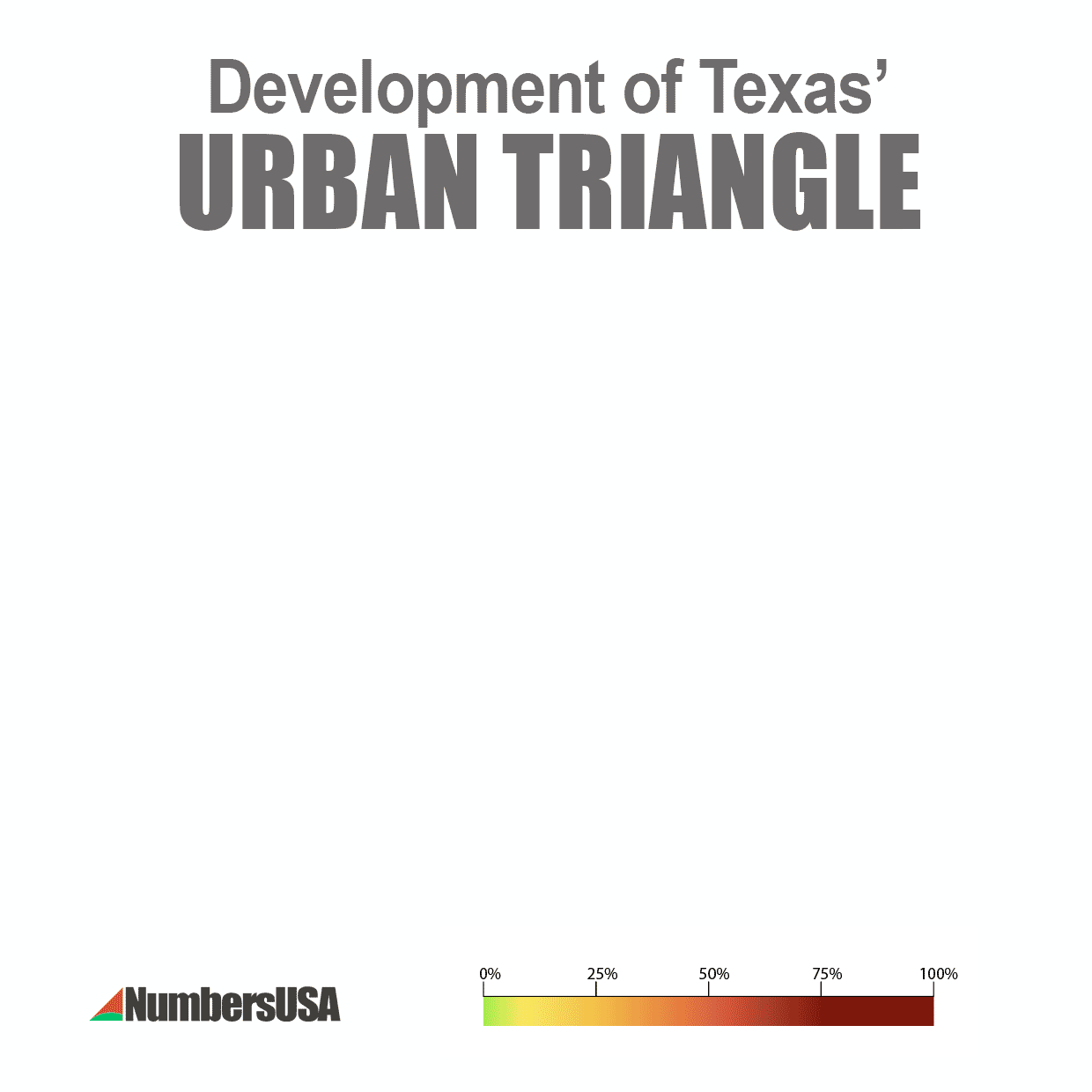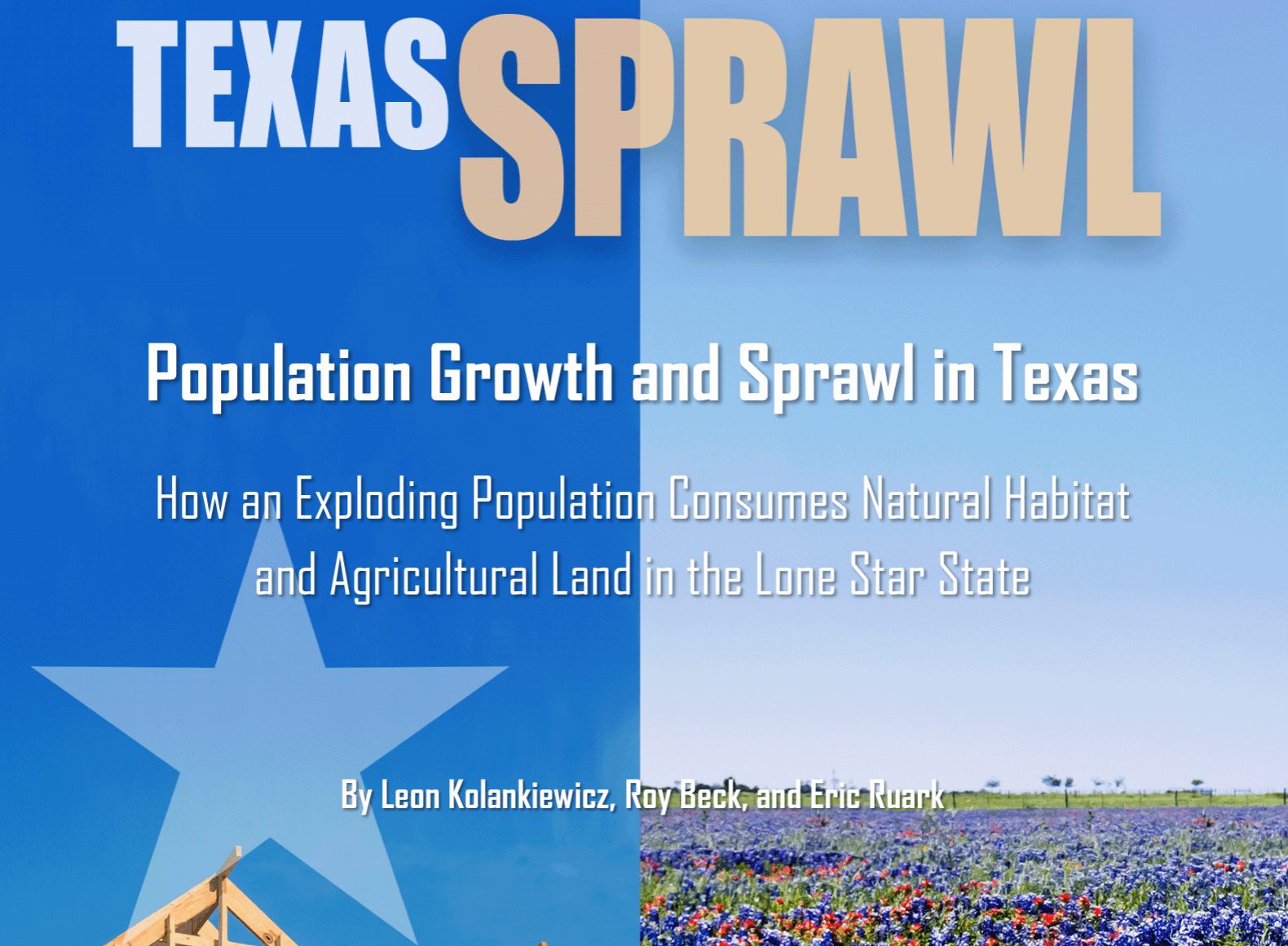
Purple plains, prairies, and croplands are giving way to urban megalopolises that most people don't want to live in. Those are two of the emerging findings from the over 20 years of studies that NumbersUSA has produced, including our latest:
Americans have always taken pride in our agriculture. Texans are no different. Ninety-three percent of Lone Star State voters say it is important "to protect U.S. farmland from development so the United States is able to produce enough food to feed its own human population in the future." That future is in doubt in Texas.

How is this happening? Well, as we've seen in other high-population-growth parts of the country (See: Colorado and the Southern Piedmont region), the big cities inside the Texas Urban Triangle - Dallas/Fort Worth, Houston, San Antonio, and Austin - are expanding out towards each other as an emerging mega-city or megalopolis comes into focus.

That 2050 future may not happen, of course. The majority of Texas voters say their lives are already more crowded, and that the projected growth would make their lives worse. For centuries, people have been drawn to Texas by its expanse and available land: "Miles and miles of Texas..." as the song goes — not "miles and miles of megacities." At some point, a place loses its luster to the point where people no longer view it as an attractive destination. Texans, like Americans in many parts of the country, are wrestling with that.
Like other states, Texas is experimenting with increased density to mitigate the sprawl. Texans already live on less urbanized land than the average American, and a plurality supports increased density. However, a majority of Texans don't actually want to live that way. Moreover, our studies have found that increased density has not stopped urban sprawl as long as the area continues to add more people.
Texans are perhaps more aware than most Americans of how immigration policy - set by Congress, hundreds of miles away from the dwindling Blackland Prairie of Eastern Texas - plays a determining role in the congestion and sprawl they experience in their daily lives. A majority of Texans support reforms to international migration that would slow or stop population growth in their great state.
The rest of us can learn much from what is happening in Texas. It was a Texas Congresswoman - the late Barbara Jordan - who said "it is both a right and a responsibility of a democratic society to manage immigration so that it serves the national interest." I invite you to read the condensed version of our study and ask yourself if immigration is being managed in the interest of Texans, and America, or if a change of policy is necessary.
JEREMY BECK is a V.P., Deputy Director for NumbersUSA





